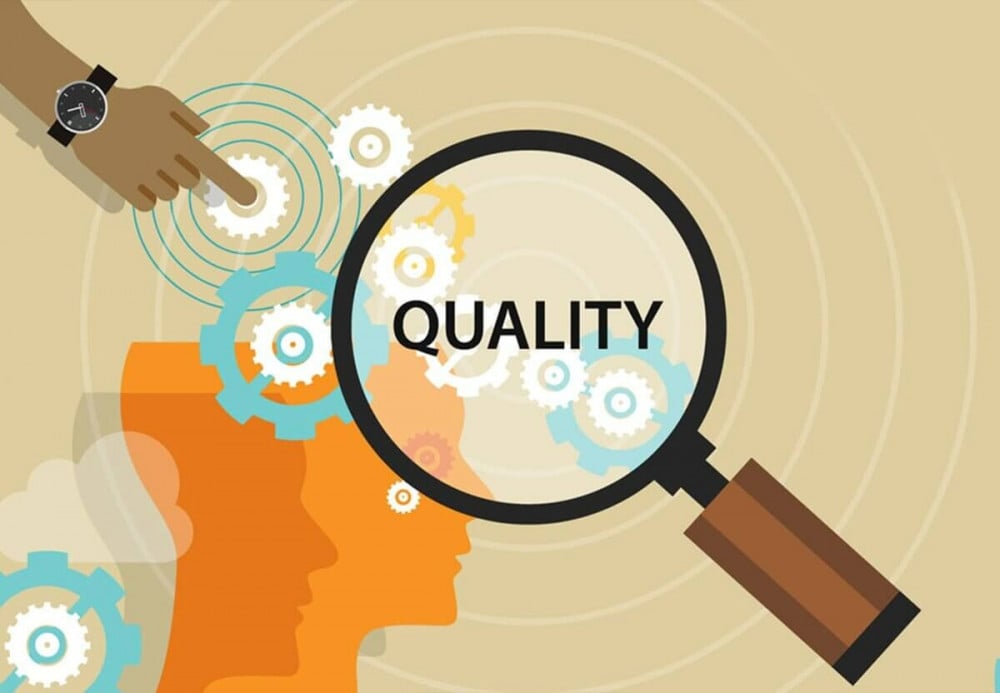Quality is a critical concept in the product industry and its impact extends to all aspects of economic and social life. Providing high quality products contributes to achieving customer satisfaction and building a good reputation for companies and brands. In this article, we will explore the importance of quality in products and its impact on individuals, businesses, and society in general.
First and foremost, attention to quality is an essential part of any successful company's strategy. When a quality product is manufactured, it provides superior value to customers, as it works to meet their needs and expectations. This results in increased customer satisfaction and loyalty, which increases the chances of staying in the competitive market and achieving sustainable success.
Secondly, attention to quality contributes to improving work efficiency and increasing productivity. When products are manufactured to the highest quality, they reduce the incidence of defects and errors, which means lower costs and less waste of resources. In addition, the focus on quality increases employee satisfaction and willingness to perform as best as possible, leading to overall process improvement and better results.
Thirdly, quality plays an important role in building a company's reputation and brand. When products have a good reputation because of their excellent quality, they win customers' trust and contribute to building long-term relationships. Customers tend to prefer companies that offer high quality products and provide an excellent experience. In the long run, a good reputation can lead to increased market share and enhanced brand value.
In addition, quality plays a role in improving safety and security. Low quality products may be susceptible to defects and problems that may lead to accidents and injuries. However, when quality is taken into account in products, risks are reduced and safety is enhanced for users
Our products in a yellow box are distinguished by their high quality:
The social impact of quality cannot be overlooked either. When products are of high quality, they achieve user satisfaction and enhance their well-being. By meeting consumers' needs and providing reliable products, quality can improve the quality of life and promote sustainable development.
It can be said that quality is a critical element in the success of products and companies. If investment is made in improving quality and meeting customer expectations, companies can build strong customer relationships and achieve sustainable development and growth. In addition, quality improves production efficiency, reduces costs and delivers superior value to customers.
Therefore, attention to quality must be an essential element in corporate strategies and operations management. Emphasis must be placed on process improvement, quality control and product development on a continuous basis to meet customer expectations and achieve success in the competitive business market
What are some strategies that some companies follow to improve the quality of their products?
Improve the design process: Companies can start by improving the design process for products. Customer requirements and expectations must be carefully analyzed, and innovative design techniques used to develop new products that meet these expectations. Quality factors such as durability, materials used, finishes and fine details in the design must also be taken into account.
Ensuring the quality of raw materials: Companies must cooperate with reliable suppliers and verify the quality of raw materials used in the manufacturing process. Procedures can be implemented to verify required specifications and standards for materials and components.
Manufacturing Process Improvement: Companies must improve manufacturing processes to ensure the quality of products. Proven quality management techniques such as total quality management, error analysis, continuous improvement (Kaizen) and application of statistical process control (SPC) methods can be used. Employees must also be trained in new processes and appropriate equipment and tools provided to ensure quality production.
Quality Testing and Reviews: Periodic quality tests and reviews should be conducted to verify that products meet specified standards. Techniques such as random sampling, stress tests and post-production quality inspection can be used. This helps in detecting potential defects and issues at early stages and taking necessary improvements.
Promoting continuous learning and improvement: Companies must be committed to a culture of continuous learning and continuous improvement. Tools such as TQM charts and techniques can be used to analyze performance, identify areas for improvement and implement continuous improvements.
Providing excellent after-sales service: Companies should pay great attention to excellent after-sales service in their strategy to improve the quality of their products. This includes providing distinguished technical support, responding quickly to customer inquiries, and effectively handling complaints and problems. Providing excellent after-sales service contributes to building trust, customer satisfaction and enhancing the company's reputation.
These are some of the strategies companies can use to improve the quality of their products. These strategies must be implemented comprehensively and continuously to ensure the highest levels of quality are achieved and customer expectations are met





